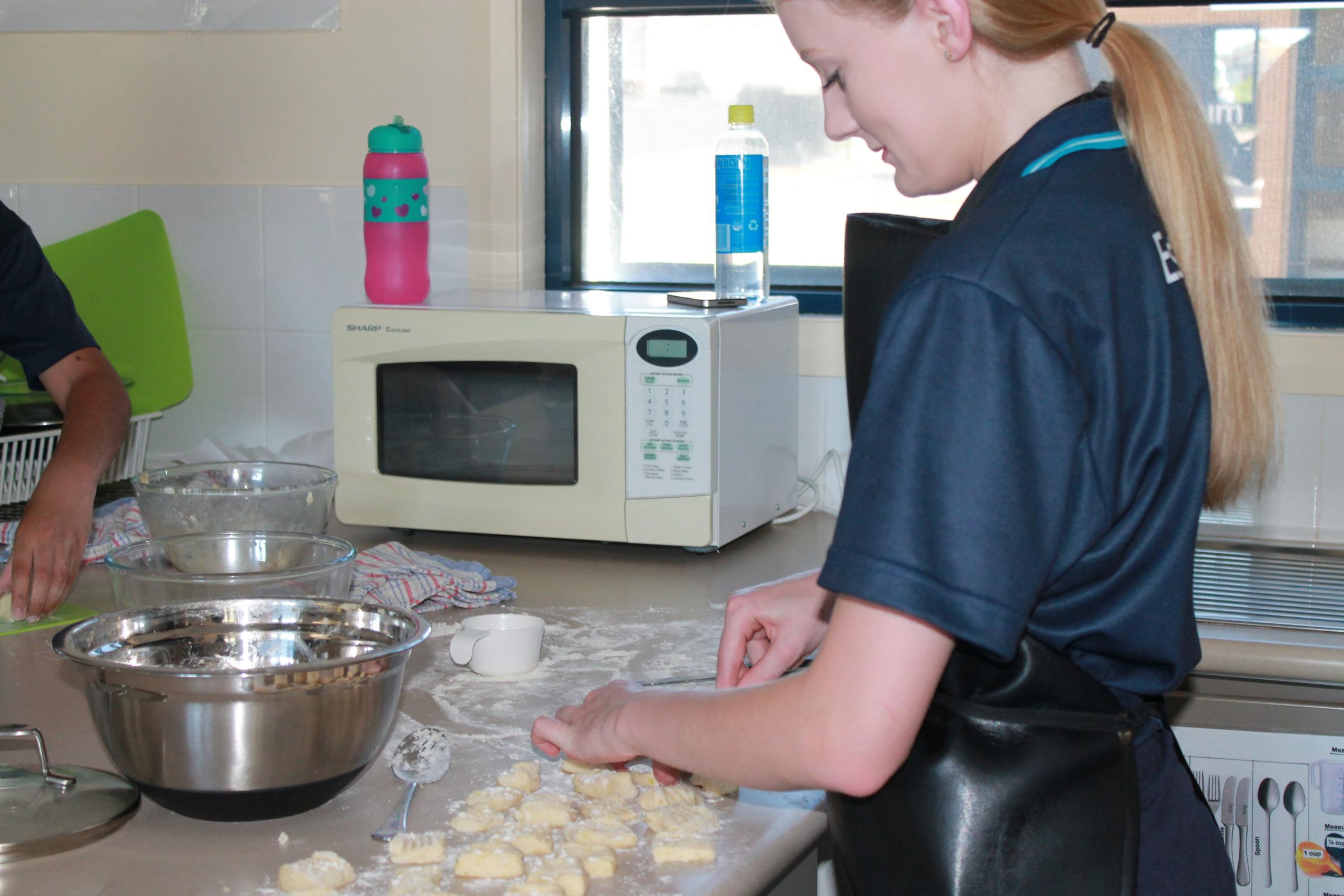Year 8 Technology Electives

Food Technology
Food Discovery
Students are introduced to contemporary concepts in food. They have the opportunity to further explore the function and sustainability of fresh, delicious foods which are vital for maintaining optimum health. They will learn and expand on their knowledge of ingredients necessary for developing successful recipes. Through taste testing and practical classes, students will share and evaluate their products. Theory lessons provide students with a firm foundation in the design process where they will investigate foods using ICT and other media. From there, they have the opportunity to create and produce a chosen recipe which they then evaluate using sensory words.
Junior Masterchef
Students increase their knowledge of food and cooking in all areas of a working kitchen. They demonstrate hands on experience in using new equipment while dealing with a variety of fresh produce. In theory sessions, students investigate food sustainability, aspects of the Australian food industry, cooking techniques and specific ingredients. This knowledge is then applied using the design process where students have the opportunity to create, produce and evaluate their own recipes in accordance with specifications provided in design briefs. Students will also explore the benefits of eating a wide range of foods from the Australian Healthy Eating Plate and of choosing fresh produce over processed foods. They are ultimately challenged to demonstrate their ability to use and adapt a wide range of ingredients in the design, production and evaluation of their own healthy dish.
Please note that completion of this subject is a pre-requisite for Year 9 Senior Masterchef in 2018.
Materials & Systems Technology
Wood and Plastics
Students are required to complete a set of tasks to be able to accurately measure and mark out material for cutting. They work from a design brief to create their own product from timber and plastic, reinforcing the skills previously learnt in the past unit of work. Students are exposed to working drawings such as isometric and oblique shapes. Students produce and construct units of work integrating wood and plastic. Models include a Hot Rod Vehicle, Timber Chest and Storage Box. They use a range of hand and power tools while completing practical tasks. All students present an evaluation of their products at the completion of each model.
Digital Technology
In a Digital World
Students work through the process of designing and creating digital solutions for real-life problems within the school environment. In designing their solutions, students gather information from key stakeholders (such as staff and students) to determine functional requirements and factor in the implications of sustainability, technical and usability constraints. Students design and test a range of algorithms (instructions) which form the basis of key processes and learn how to manage, process and present data in a secure and systematic way. Students work collaboratively to design, test, evaluate and present their solutions to stakeholders.
Programming
Students build upon their foundational knowledge and skills in visual programming, learned in Years 6 and 7, to create more complex digital games, animations and processes. They use a combination of iPad applications, web-based programs and micro-computer technology to develop their programming skills. Students use micro-computer hardware and software to build digital devices and interactive objects that can sense and control the physical world. They use computational thinking processes and work collaboratively to design, test, analyse and further develop their digital solutions.
